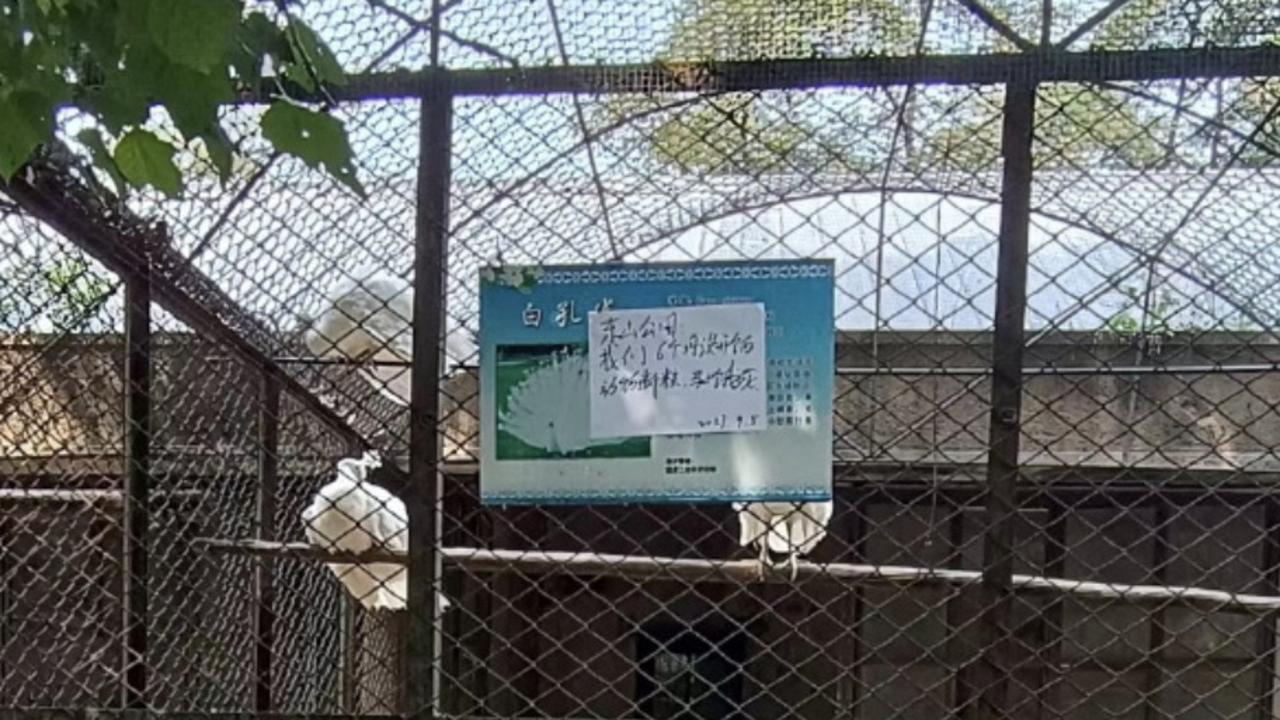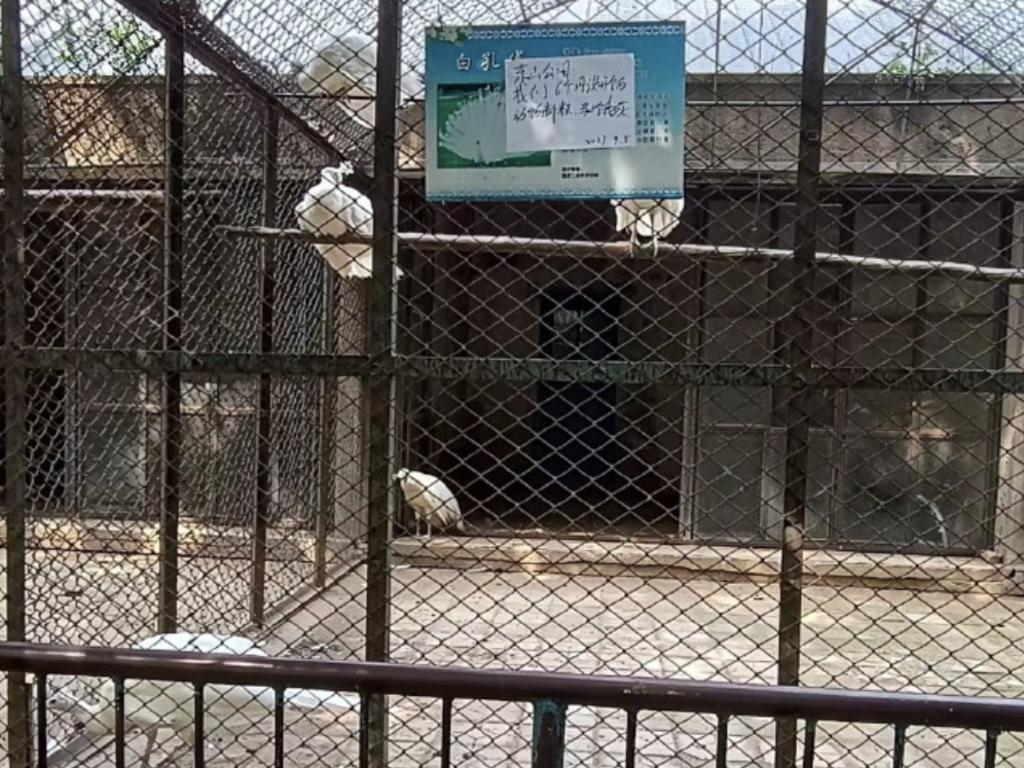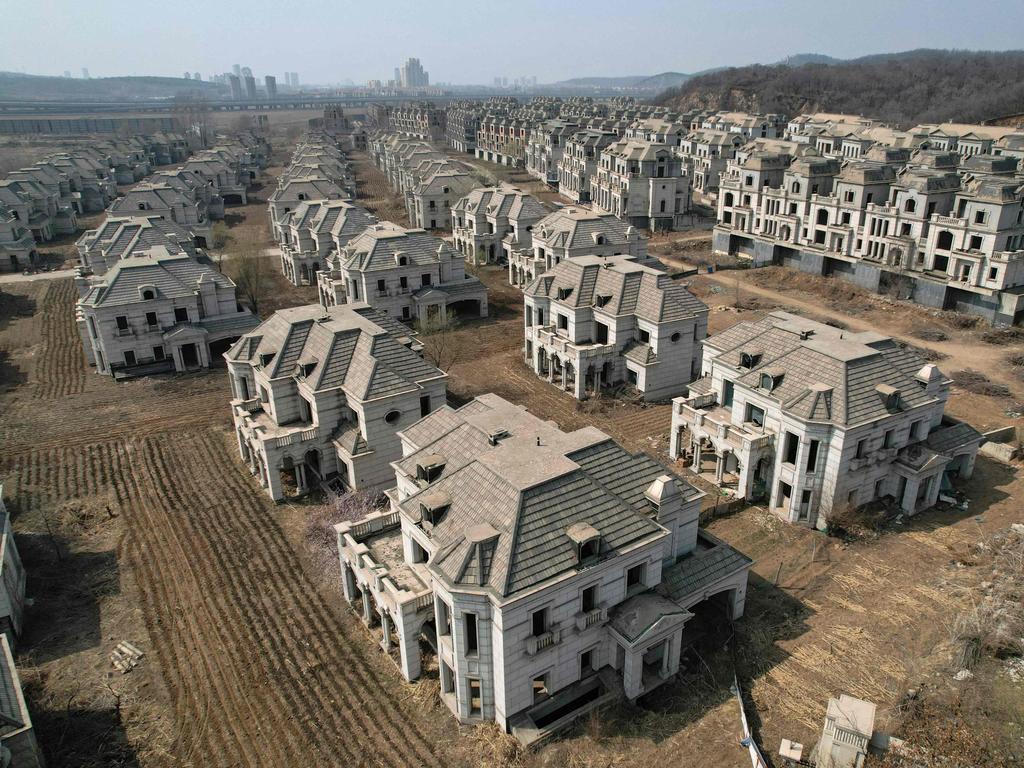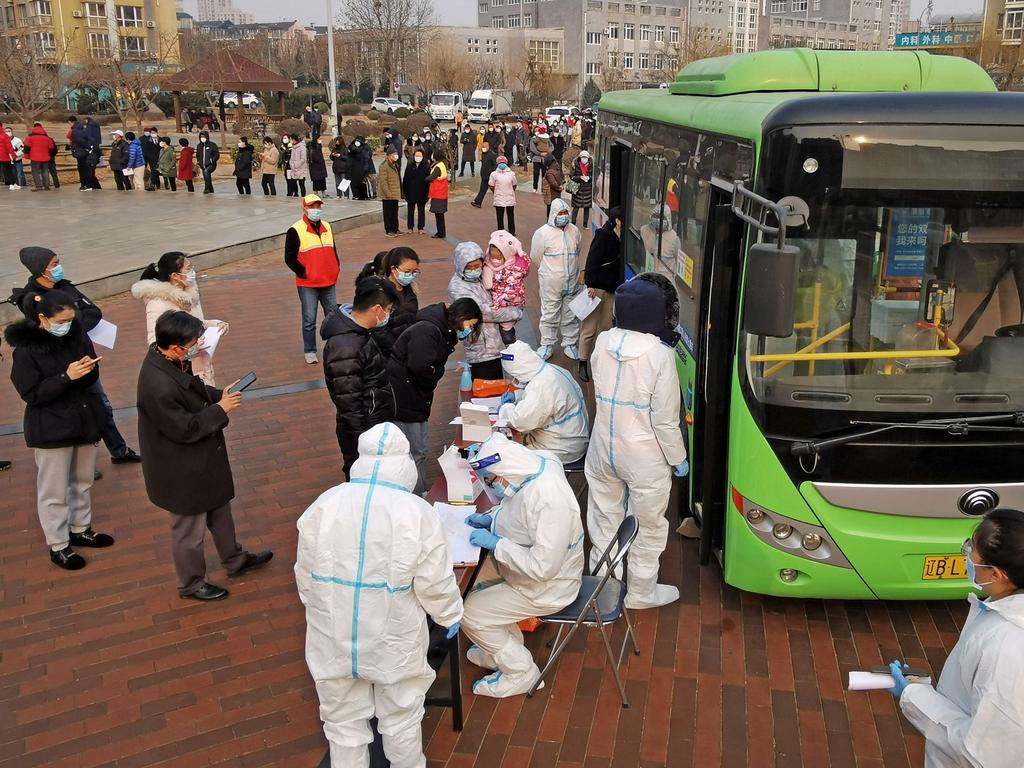Wildlife conservation group pleads public to donate food to Chinese zoo as animals starve
There has been a desperate plea for the public to step in as China’s mounting debt crisis spirals the nation out of control.

A Chinese wildlife conservation group has issued a desperate appeal for volunteers to donate food to animals at a zoo due to a lack of funds for feeding the animals — pointing to a much bigger crisis.
The ugly debacle has raised concerns for animals held at other zoos around the nation as inflation takes hold.
The Dongshan Park Zoo in the nation’s Liaoning province, run by the local government, has reportedly not received state funds for six months and was facing financial difficulties.
The financial crisis is a result of the Covid-19 pandemic and a real estate slump that affected local governments, causing them to drastically cut spending.
The Endangered Species Fund raised the alarm via a Weibo post this week, pleading with the public to help feed starving animals at the tourist hotspot.
“There are still bear cubs in the park that need to be fed, the [horse] mare is about to give birth and her food has been reduced by half, and the zoo’s staff have not been paid for six months,” the fund said.
“We hope relevant departments can pay attention to this issue!”
The park currently has four yaks, including one-month old cubs, four ponies, ten alpacas, and three sika. The zoo also features one camel, six black bears, and more than a hundred monkeys and birds.
Facing mounting financial stress, Chinese city and provincial governments have resorted to unusual measures to generate income, such as imposing fines on restaurants and truck drivers.
Local governments had to allocate significant funds for mass testing and enforcing Covid-19 lockdowns as part of President Xi Jinping’s all encompassing zero-Covid campaign.

Tragic note
A video posted online showed a handwritten notice in the park, indicating that staff hadn‘t been paid for six months, and the animals were without food.
China‘s regional governments are burdened with significant debt, including “hidden debt” issued by local government financial entities.
Willy Lam, a senior fellow at US based security think tank The Jamestown Foundation, estimates that regional government debt could have hit the 13-figure mark.
“Half of the income generated by local governments is used to pay the interest on their debt,” he told CNN.
“They have to grab every means to get money: hence the harsh fines on restaurants and other companies.”
The central government in Beijing has issued directives to curb arbitrary fines, but the problem persists, causing potential dissatisfaction with the CCP.
Experts warn that the random fines harm businesses, reduce entrepreneurial spirit, and may lead to more public dissent against authorities and negatively affect the poor.
As a result, local governments in China have reportedly resorted to off-the-books borrowing to cover funding shortfalls, prompting calls from financial scholars for policymakers to consider drastic measures to address the problem.


Potential solutions discussed include allowing local governments to sell bad debt to asset managers and increasing their share of tax revenue.
A seminar hosted by the National School of Development of Peking University on September 9 brought together scholars to discuss these challenges and potential solutions.
The “hidden debt” of Chinese local authorities includes bonds issued by local government financing vehicles (LGFVs) and debt hidden in public-private partnership projects and shady loan contracts.
Official data on the scale of hidden debt is not publicly available, but research suggests that interest-bearing LGFV debt increased from 32.6 trillion yuan to 54.6 trillion yuan ($A11 trillion) between 2018 and 2022.
Despite efforts by the central government to address this issue, local governments are obligated to repay some of this debt.
As of July, the on-the-books local government debt totalled 38 trillion yuan ($A8.13 trillion).




